The 5 Things You Should Know About Supermarkets
Get the real story on those shrink-wrapped cucumbers. Plus, more ways to be a smarter shopper in the produce aisle.
By Lynn Andriani
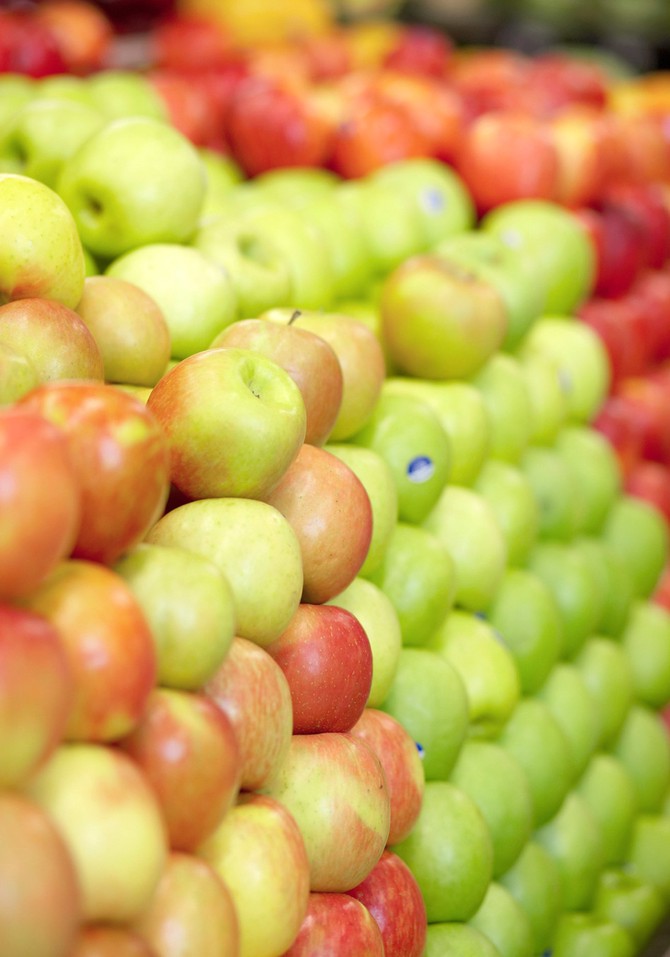
Photo: Lew Robertson/Getty Images
The age of the fruit they're selling matters less than you think.
Over the last few years, while many of us have been trying to buy more seasonally, Lori Taylor, the produce-industry expert who writes The Produce Mom blog gladly buys fruit she knows has been in storage, or on a ship, for a few months. She didn't hesitate to purchase Honeycrisp apples when she saw them in stores in June, even though she knew they were grown late last year. Taylor explains that such produce (most often apples, bananas, kiwifruit, persimmons, tomatoes, cantaloupes and avocados) is stored in climate-controlled rooms and has had all the oxygen sucked out of it to drastically slow down the fruit-ripening process. "[The fruit] just goes to sleep," she says, so its "season" is extended—a perk for those who are open to buying, say, apples in June.
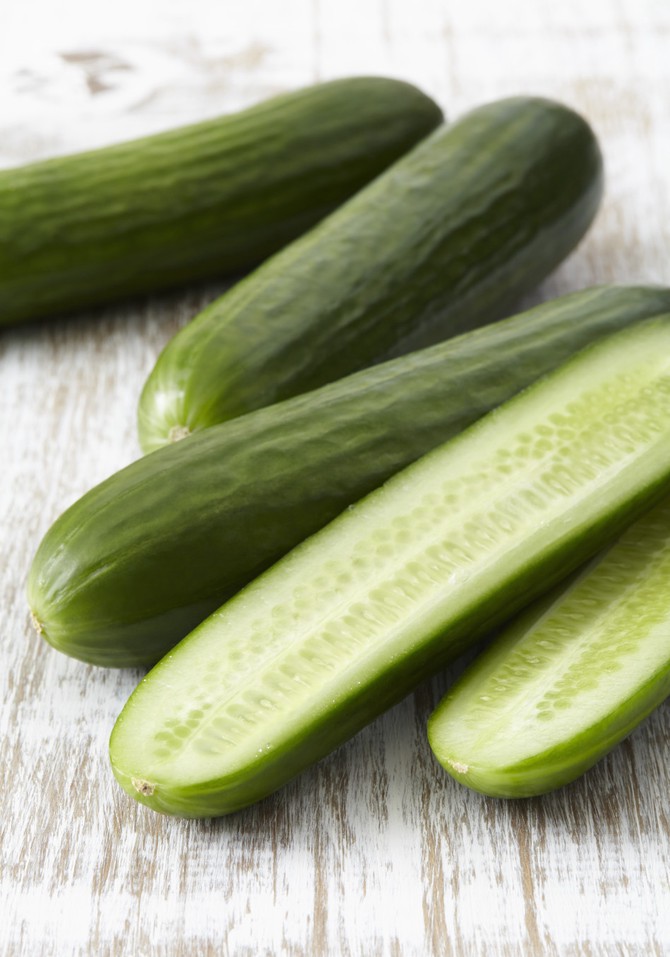
Photo: Sally Williams Photography/Getty Images
Your suspicions about that shrink-wrapped produce might be wrong.
We admit that we sometimes steer clear of prepackaged cucumbers because we'd rather choose our own, touching and smelling the produce. Yet the sealed version can be superior. For instance, plastic wrap can extend a cucumber's shelf life from three to 14 days, and studies have found similar numbers for apples, grapes and potatoes. For those who want their produce to last at least one week, adding shrink-wrapped vegetables to your basket can be a good way to ensure you aren't back shopping again within days.
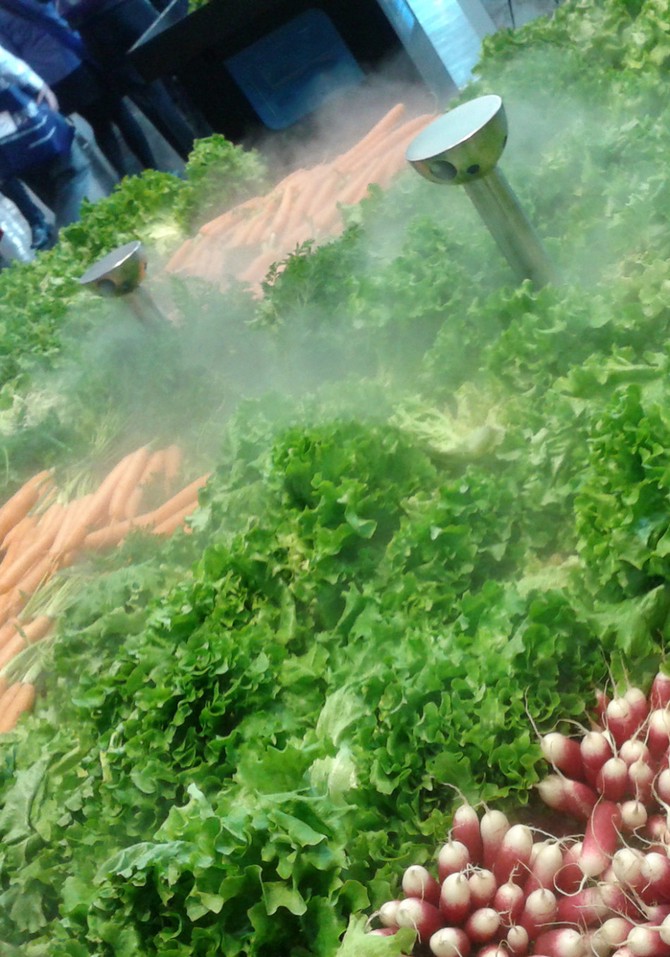
Photo: TheaDesign/Thinkstock
Those mister sprays are your friend enemy ally, but proceed with caution.
The mister heads you see in most produce aisles are there to keep produce from wilting. When monitored and adjusted regularly, they're aimed at leafy greens along with loose lettuce, celery and root vegetables (such as carrots and radishes), as well as cabbage, green onions and parsley. Ideally, the misters are kept away from mushrooms, peppers, asparagus, eggplant and summer squash, which should not be watered (watering can assist micro-organisms in degrading and eventually spoiling these foods). That's not to say you should avoid buying those veggies if they've recently been sprayed; just be sure to examine them closely for signs of deterioration.
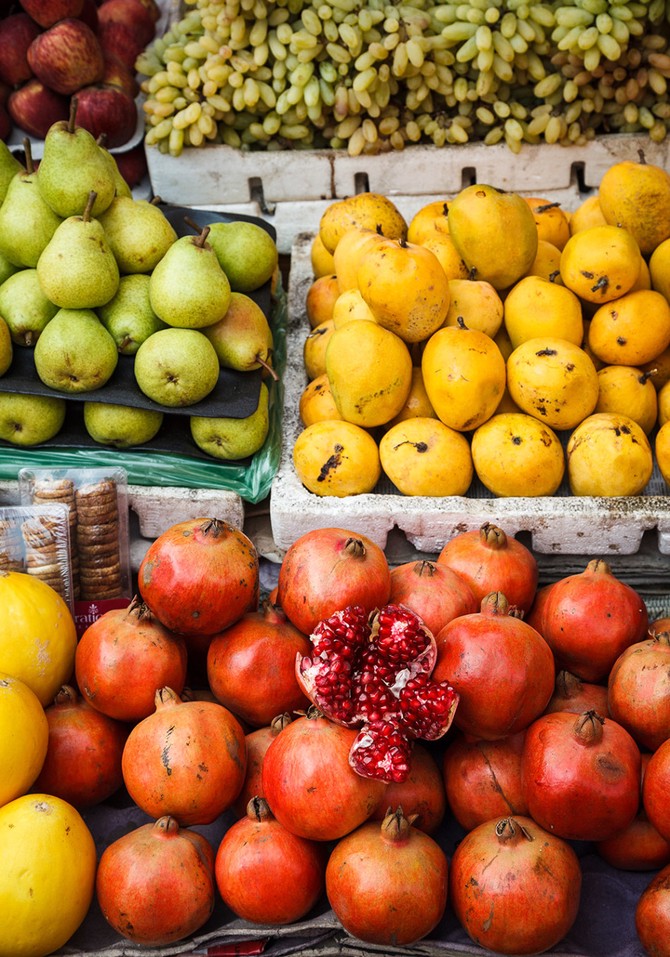
Photo: Yadid Levy/Getty Images
Stores know you better than you know yourself...
It's pretty clear why stores stock tortilla chips next to avocados, and salad dressing next to romaine. But stores are starting to use some more-subtle pairings, too, to nudge shoppers to buy. For instance, new research shows that 65 percent of grape buyers also buy diet soda, so don't be surprised if you see a stack of six-packs next to grapes. And when you do, you might want to take the time to ask yourself whether you really need the extra.
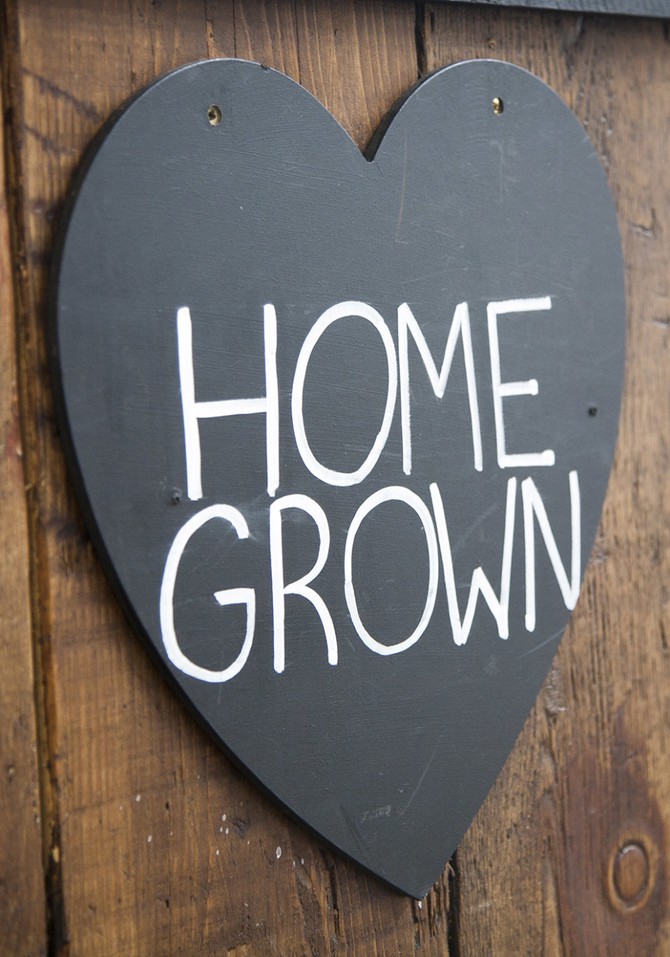
Photo: Grady Coppell/Getty Images
...And they really have millennials' number.
Terms like "fresh" and "homegrown" have broad definitions; it's conceivable that nearly everything in the produce department falls into at least one of these categories. Yet supermarket merchandisers hope that using the words will draw shoppers in, especially millennials. If you're a millennial, be aware that marketers have you in mind when they use labels such as "local."
Published 08/20/2015

